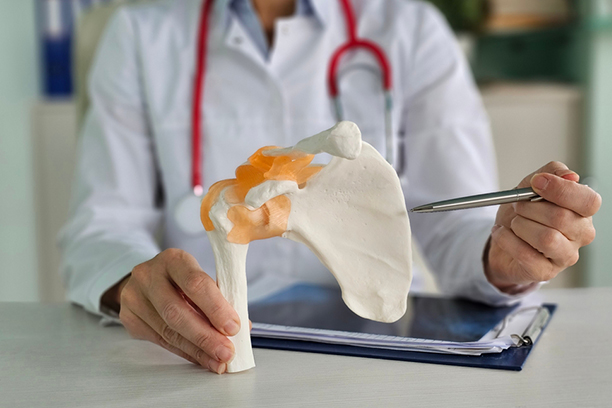How to Prevent Joint Pain Expert Health Care Tips for Healthy Bones and Muscles
Joint Pains, words which can be heard from people of literally all age groups. Be it a 30 year old to a 70 year old, joint pains have taken over the world for a number of reasons, keeping the medical causes aside, lifestyle changes, sedentary lifestyle, unhealthy food habits, excessive use of processed foods and also the ever rising adulterated products are some of the many factors which have contributed to the overall decrement in joint health and a massive increment in joint pains.
Commonly reported painful joints as per Dr. Chaitanya Ghanta, one of the best orthopedic doctors in Guntur at Sree sankalpa Multispeciality Hospital, include the knees, hips, and lower back, which are frequently subjected to wear and tear from activities and aging. The knee joint, in particular, is often affected by osteoarthritis, leading to swelling, stiffness, and pain during movement. The hips can also suffer from similar degenerative changes and are particularly painful for those with hip osteoarthritis, which can restrict mobility. The lower back is another major source of pain, often linked to conditions like sciatica or herniated discs affecting the spinal joints. Additionally, the hands and fingers are frequently affected by conditions such as rheumatoid arthritis, which can cause significant inflammation and joint deformity. Other painful joints can include the shoulders and ankles, particularly in athletes or individuals who may suffer from acute injuries. Conditions such as bursitis or tendinitis can exacerbate pain in these joints. Ultimately, the type and degree of joint pain experienced can be influenced by both chronic conditions and acute injuries, needing tailored approaches for relief and management.
Articles List

Here are some prevalent types of joint pain and their causes:
- Osteoarthritis: A degenerative joint disease characterized by the breakdown of cartilage which can benefit from arthroscopy treatment for joint pain in Guntur. Causes include aging, joint overuse, obesity, and previous injuries.
- Rheumatoid Arthritis: An autoimmune disorder which can result in inflammation in the joint areas. The most commonly seen causes of this are usually genetic or other such uncontrollable factors.
- Gout: Also a type of arthritis which results from cumulation of uric acid. Factors contributing to gout include a high-purine diet (red meat, seafood), obesity, genetics, and certain medications.
- Bursitis: Bursae inflammation in joints. Causes include repetitive movement, prolonged pressure, and infection.
- Tendinitis: Inflammation of tendons, often resulting from overuse or injury. Common causes include repetitive motions, age-related wear and tear, and certain sports activities. These are usually treated by arthroscopy in Guntur.
- Injuries
- Infections: Conditions such as septic arthritis occur when bacteria or viruses infect a joint.
- Fibromyalgia: This is usually seen by widespread pain throughout the body.
Whatever might be the cause, getting it checked at best orthopedic hospitals in Guntur as soon as you notice signs of repetitive pains is essential. This can help get the issue sorted at the root cause without interventional or surgical treatments.
However, it is essential to do our bit to help keep our bones and joints healthy by inculcating certain life style changes and dietary modifications, listed below are few such tips:
- Maintain a Balanced Diet: Incorporate calcium-rich foods (dairy, leafy greens, almonds) and vitamin D sources (fatty fish, fortified foods) to support bone density.
- Engage in Weight-Bearing Exercises: Activities like walking, running, or dancing stimulate bone strength and density.
- Strength Training: Regular resistance training helps to build muscle strength, which supports joint health and stability.
- Stay Hydrated
- Avoid Smoking and Limit Alcohol: Smoking can weaken bones, while excessive alcohol consumption can lead to decreased bone density.
- Maintain a Healthy Weight: Excess body weight can put unnecessary strain on joints, increasing the risk of osteoarthritis.
- Incorporate Omega-3 Fatty Acids: Foods rich in omega-3s (like fish, flaxseeds, and walnuts) can reduce inflammation and improve joint health.
- Consider Supplements: Consult a healthcare provider about calcium and vitamin D supplements, especially if dietary intake is insufficient.
- Practice Good Posture: Maintain proper posture to reduce stress on joints and muscles, promoting overall joint health.
Along with all this, regular medical check-ups by leading Orthopedic surgeon in Guntur can help by monitoring bone density and joint health, enabling early intervention if needed. This also helps as you age, to identify signs of degeneration and other disorders that occur from wear and tear. Always remember to keep your health as the top priority to enjoy a long and lively life.
